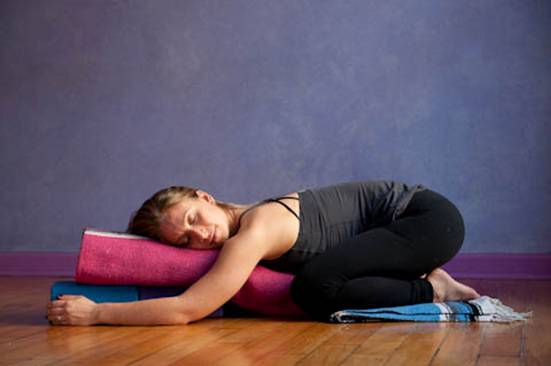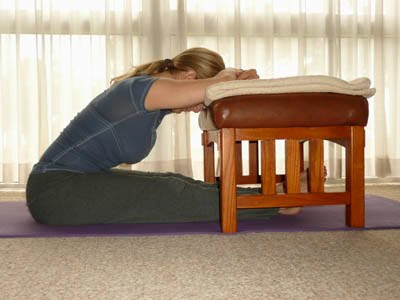With Carol Krucoff, a yoga therapist at
Duke Interactive Medicine in North Carolina.
If you have high blood pressure or know you
are at risk for it, yoga postures, breathing, and mediation can be powerful
tools in your self-care-regime. Several studies has shown that yoga can lead to
significant reductions in blood pressure, mostly likely thanks to its ability
to calm stress, which can cause short-term spikes in blood pressure and maybe
implicated in the long term development of the disease.
Researchers at the University of
Pennsylvania medical school are conducting a large trial of yoga and other
lifestyle interventions for high blood pressure, following an earlier trial
that showed promising results from yoga. Of course, if you have high blood
pressure, your doctor may also recommend switching to a diet high in fruits and
vegetables and low in sodium, and getting daily moderate aerobic exercise to help
control the condition.
If you’re a high-intensity person who’s
always juggling a lot of activities, the most healing practice for you may be
the one that lets you “undo”. This doesn’t mean you have to give up your
favorite active vinyasa class. Try alternating days of active practice with
days of quieter practice, and especially include calming forward bends and
slow, deep breathing. Commit to a weekly restorative session where you set a
timer and settle into a relaxation pose for at least 5 – 10 minutes,
cultivating the ability to release tension, slow your breath, and calm the
chatter of your mind.
Practice
Calming
poses
If you have high blood pressure, include
these poses in your routine.
Legs-Up-the-Wall Pose

Lie on the
floor with your legs resting on the wall or on a chair, arms at your side,
palms up. If you’d like, place one eye pillow on your eyes and one in each
palm.
Supported
Child’s Pose

Extend your
upper body forward onto a bolster or folded blanket. Adjust for complete
comfort.
Supported Seated
Forward Bend

Sit on a folded
blanket and stretch your legs in front of you. Fold over and rest your forehead
and folded arms on a chair or bolster.